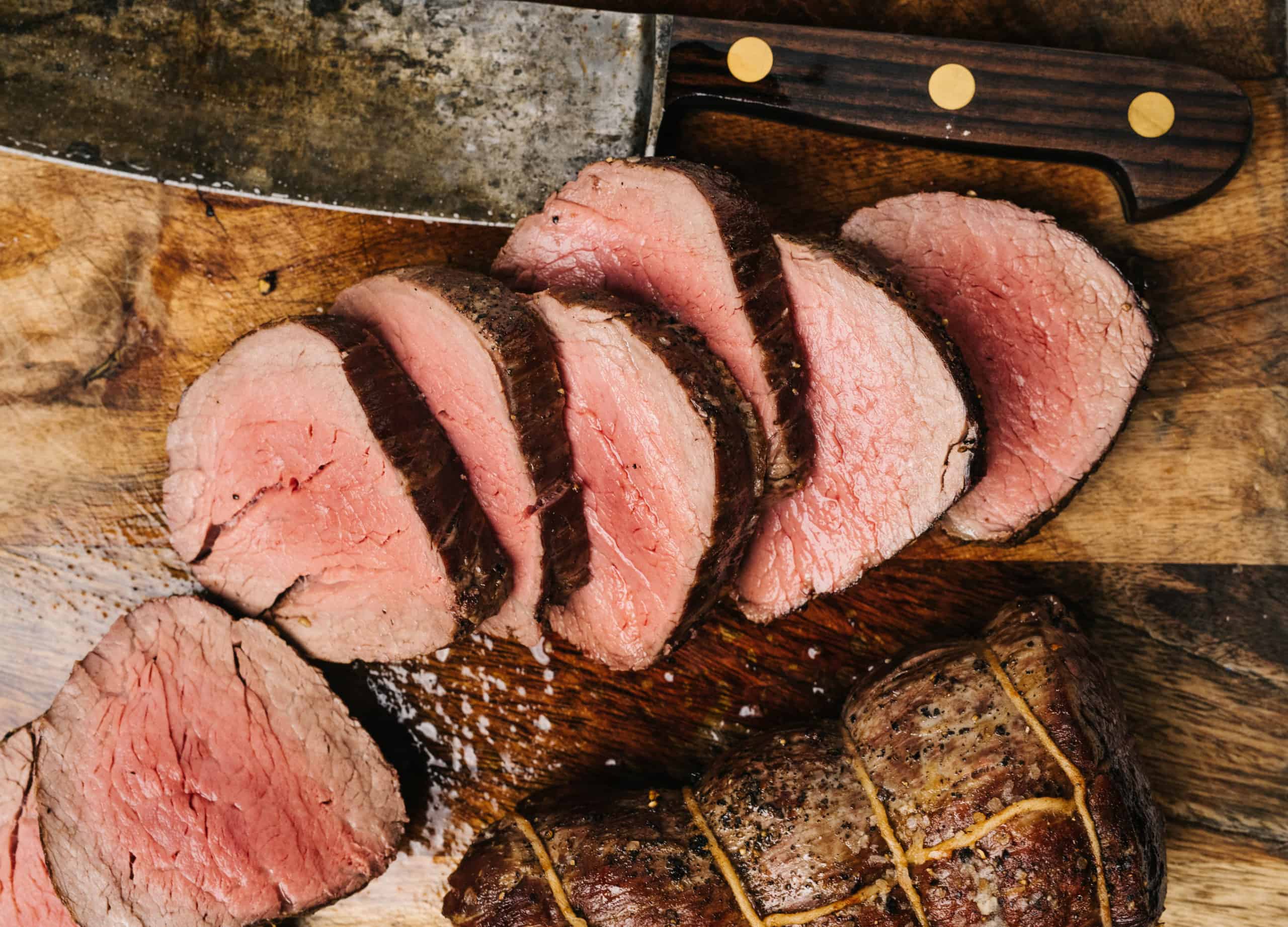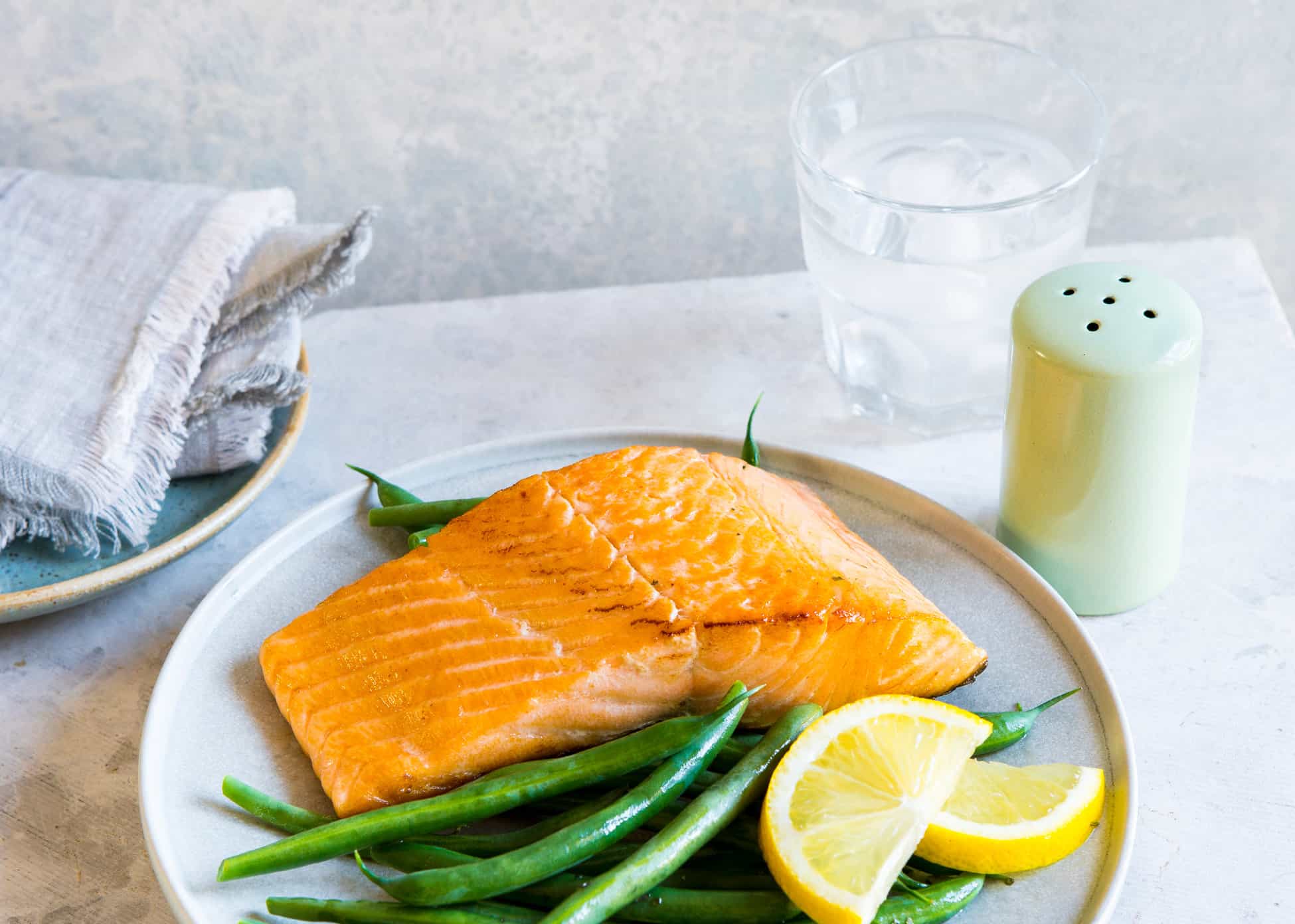- Studies show that women can lose weight on keto, at least in the short-term.
- Keto significantly restricts the amount of carbohydrates you can eat, which can be challenging to sustain.
- Keto can affect women’s hormones—and is linked to several health benefits and risks.
Many women are trying the low-carb, high-fat keto diet—whether for weight loss or other health goals.
While keto can help women lose weight in the short-term, it can be hard for many to sustain. There are also some side effects and possible impacts on hormones from the diet.
We spoke with Emily Rivelli, MS, NDTR, NBC-HWC, to get more information about keto for women. Keep reading for benefits, risks, and practical tips.
Note: Consult with your health care provider before making dietary changes.
This is Chapter 8 of Noom's Guide to the Keto Diet:
- Empowering Your Wellness Journey: Exciting Updates to Noom
- The Noom Kitchen Cookbook: Healthy Living Secrets
- What is the ketogenic diet? Everything you need to know
- The ultimate keto food list
- Keto weight loss: FAQs and practical tips
- Not losing weight on keto? Here are 9 reasons why
- Vegetarian keto for beginners
- 67 easy, healthy keto recipes for weight loss
- 10 low-carb keto drinks for worry-free hydration
- Keto for women: Benefits, risks, and practical tips
What is keto?
Keto is a low-carbohydrate, high-fat diet. It works by forcing the body into a metabolic state, known as ketosis, making it more efficient at burning fat for energy.
When the body is deprived of its main energy source, glucose (from carbohydrates), it will begin to release stored fat. The liver uses these stored fats to produce ketones, which become the main energy source during ketosis.
For a deeper dive, check out our complete beginner’s guide to keto explaining everything else you need to know.
At Noom, we don’t believe in restrictive diets, but we understand that people have different reasons for how they eat. And we’re here to help people find an eating style that works for them.
Does keto work for women?
Yes, the keto diet can help women lose weight, but many studies find that weight loss is short-term and often not sustainable.
One study of 21 women found that keto was effective for weight loss in participants with two or more years of resistance training experience.
Other studies that included men and women suggest that keto may be slightly more effective for weight loss than high-protein, moderate carbohydrate, and low-fat diets.
Keto can lead to weight loss in both men and women. However, men in some studies seem to drop slightly more weight overall—but this difference isn’t unique to keto.
In fact, one systematic review of weight loss studies (including low-carb, high protein, and low-calorie diets) found that 80% of male participants lost more weight than female participants.
Researchers in this review suggest that variations in weight loss may happen because of physiological differences between men and women. For example, men have a higher average muscle mass compared to fat mass than women.
These findings don’t mean women can’t be successful on keto—researchers pointed out that the female participants were still able to lose weight successfully.
There’s also no significant evidence that men and women should pursue different diets for weight loss, and popular keto guidelines are largely the same for men and women.
What really matters is that women find a sustainable way of eating that supports their long-term goals, whether that includes a ketogenic diet or not.
What are the benefits of keto for women?
Many women look to keto for weight loss, but it may also improve your health beyond the scale. Let’s dive into the potential health benefits of a ketogenic diet.
1. Reduced hunger
According to Rivelli, many individuals report that they feel more satisfied and less hungry when following a keto diet, which may be due to changes in your appetite-regulating hormones.
Research agrees that keto can reduce serum insulin levels, which may help curb your appetite.
Other appetite-regulating hormones, such as ghrelin and leptin, may also be affected by following a keto diet. However, some research suggests that these hormone changes may last less than 12 months.
2. Improved menstrual regularity and ovulation in women with PCOS
Women with polycystic ovarian syndrome (PCOS) have hormonal imbalances that disrupt ovulation and menstruation.
Some research proposes that women with PCOS may see an improvement in hormonal imbalances by cutting carbs. Keto researchers speculate that keto might be a good dietary treatment for women with PCOS.
Rivelli agrees that several PCOS studies seem to show positive effects from keto, including improved androgen levels and overall endocrine function.
3. Improved insulin sensitivity
Insulin sensitivity is how well your body’s cells respond to insulin.
Improving your insulin sensitivity can result in a range of benefits, including increased fat loss and reduced risk for developing type 2 diabetes.
Rivelli adds that insulin sensitivity can be improved with keto. Research suggests that this may be the result of fewer and smaller fluctuations in insulin secretion that come with reducing the amount of carbohydrates you consume.
4. Fat loss
There’s a reason keto is touted as a weight-loss strategy—it really seems to work.
According to one study, keto might help women reduce body fat after eight weeks.
Another study suggests that long-term keto may be an effective way to reduce the body weight of obese women and men—however, this study only includes 24 weeks of treatment.
5. Better heart health
The research regarding heart health benefits is mixed, but several studies show promising results.
A thematic review of these studies looked into cardiovascular risk factors after 8–12 weeks of keto dieting—and the results show an overall reduction of heart health risk factors.
Participants in another study showed reduced LDL (bad) cholesterol and blood glucose levels—both of which are beneficial for heart health.
But it’s hard to know whether these effects are due to keto or healthy weight loss. A study of young women with healthy body weights showed the opposite effect—increased LDL levels.
6. Cognitive benefits
Some research has pointed to keto as a possible solution for cognitive impairment.
In the above study, elderly patients with mild cognitive decline experienced a boost in memory performance after six weeks on a keto diet when compared to those on a high-carb diet.
What are the potential risks of keto for women?
While many women enjoy weight loss and health benefits from keto, it’s not for everyone. Some people may experience short- or long-term adverse effects.
So chat with your doctor before starting your keto journey.
Keto flu
Rivelli says individuals on the keto diet may develop the “keto flu,” which is a group of side effects that can strike within the first few weeks of adopting a keto lifestyle.
While generally short-lived, the “keto flu” can leave you feeling crummy for a few weeks. Researchers aren’t yet sure why this happens, but symptoms to watch out for include:
- Headaches
- Constipation
- Diarrhea
- Weakness/dizziness
According to Rivelli, keto beginners may be especially vulnerable to gastrointestinal (GI) issues like upset stomach during the keto flu. This discomfort is usually due to an uptick in fatty foods and an overall decrease in dietary fiber.
Low bone density
Rivelli says low bone density is also a risk for some women following a keto diet, especially if they miss one or more periods (known as amenorrhea).
One study points to evidence of significant changes in the bone remodeling process (replacing old bone tissue with new tissue) of athletes after a short-term keto diet.
While the study acknowledges that long-term consequences are still unknown, researchers acknowledge that changes in bone remodeling may adversely affect bone strength and density.
Nutrient deficiencies
Restricting your carbs can mean risking an imbalance of crucial vitamins and minerals.
One study suggests that low-carb diets are often associated with low thiamin, folate, vitamin A, vitamin E, vitamin B6, calcium, magnesium, iron, and potassium. Rivelli also mentions vitamins C and K can run low.
Fatigue
If you notice your energy levels dip and you can’t stop yawning after starting keto, you’re not alone. Rivelli says cutting carbs may make women feel tired and sluggish.
Fatigue brought on by reducing carbs may also make you want to give up early when exercising, according to a recent study.
Potential long-term risks
Rivelli notes keto can lead to long-term risks like kidney stones, gallstones, and even liver disease.
Although keto can improve heart health, the reverse may occur if women eat a diet high in saturated fats.
Rivelli cautions that a diet high in saturated fats may trigger heart disease and other cardiovascular complications. Generally, women should aim for healthy, unsaturated fats instead.
Ultimately, Rivelli says more research is needed to fully understand how keto affects health in the long run.
How does keto affect hormones in women?
Research indicates that keto might affect multiple hormones, promoting or interfering with regular menstrual cycles and ovulation. These hormones include:
- Luteinizing hormone (LH): triggers ovulation and controls the menstrual cycle
- Follicle-stimulating hormone (FH): affects menstruation and egg growth
- Free testosterone: a male hormone also present in women
- Estradiol: the primary female hormone in women who aren’t pregnant
- Progesterone: key in preparing women for pregnancy
- Sex hormone binding globulin (SHBG): controls delivery of some hormones to tissues
- DHEA sulfate: essential in the development of estrogen and testosterone
According to Rivelli, some women may experience amenorrhea, or missed periods, because of keto’s impact on hormones.
But because research is still limited, there is conflicting data about how ovulation and menstruation are affected by keto.
Talk with your doctor if you have any concerns about hormonal health or a history of menstrual irregularities.
Who should avoid keto?
Rivelli does not recommend keto for women who:
- Have a history of eating disorders
- Have a history of gallbladder disease
- Have liver complications or diseases
- Have pancreatic disease
- Have thyroid problems or complications
- Have a history of diabetes
- Are on anticoagulant therapy
- Are pregnant or breastfeeding
Research also suggests that individuals with a history of mental illness, substance abuse, or renal failure avoid the keto diet.
Keto is a restrictive diet and can be difficult to maintain for long periods of time, so it’s hard to know if keto is right for you without talking to your doctor first.
Rivelli stresses doing your research and chatting with your doctor or dietitian to make sure keto is a good fit for you, even if you’re healthy.
3 keto weight loss tips for women
The internet is full of keto food lists and recipes, which are perfect resources when you’re getting started. But how do you navigate keto eating on the fly?
We’ve included our three favorite tips to help you get started.
1. Focus on sustainable changes
The key to lasting change is taking small steps. Instead of diving in and cutting out entire food groups on your first day, go slow.
Try sustainable baby steps, like researching keto recipes and slowly reducing your net carbs per day until you hit your carb goals.
If you want to take the slow and steady approach to reduce your carbs, start by tracking all the carbohydrates you eat in one day. You can use an app with a food logger or write everything down as you go.
Let’s say you eat 250 grams of carbs on your tracking day.
You might try reducing your daily carbs by 10% (in this case, 25 grams) each day until you’ve reached your target goal.
2. Eat in a calorie deficit
According to Rivelli, weight loss during keto requires a calorie deficit.
This calorie deficit may happen naturally if you feel less hungry on keto, but logging your calories is the only way to know for sure.
An app like Noom Weight can help you stay on top of your caloric intake, so you stay in the calorie range that helps you lose weight.
3. Fill up on fewer calories using the calorie density principle
Research points out that high-fat foods typically seen in the keto diet (like processed meats and cheeses) usually have a higher calorie density.
Reaching for foods with low calorie density can help fill you up on fewer calories.
At Noom Weight, we use a color system to help you easily understand what you’re eating throughout the day. Here’s a handy guide to help you keep your caloric density in check:
- Green foods are low in calorie density and high in water content. Nourishing staples to eat throughout your day include spinach, broccoli, and bell peppers.
- Yellow foods have more calories per volume than green foods, but they’re still great options to include in moderation. This category includes chicken breast, tuna, avocado, and turkey breast.
- Orange foods have the highest calorie density. Aim to eat these in smaller portions and save them for your favorite occasional treats. Red foods include desserts and red meats.
Additional FAQs for women considering keto
Is keto right for women over 50?
It can be. In a recent study, 67% of older participants found that the keto diet helped them get closer to their goals, which included weight loss and glucose control.
While there are concerns about how the dip in estrogen after menopause may affect keto dieters, research is limited.
Animal studies exploring this diet may eventually pave the way for future human research, but we don’t yet know how keto may affect women over 50.
Why is it hard for some women to lose weight on keto?
It can feel frustrating if you aren’t losing weight on keto—but there are some common culprits for stalled weight loss that may be to blame
- You’re not eating in a calorie deficit.
You may have heard that eating fewer carbs automatically translates to weight loss, but this isn’t the case. Rivelli stresses that for weight loss to occur, you must also eat within a calorie deficit.
- Early dips in energy make it harder to exercise.
If you’re struggling with sluggishness from the keto flu, exercise is probably the last thing on your mind. Try adding light, fun workouts when you can, but don’t beat yourself up if you’re not up for it.
- You haven’t uncovered your emotional eating triggers.
Maybe you reach for keto snacks when you’re stressed, or you’ve picked up a late-night overeating habit after feeling hungry all day.
Understanding your triggers can help you uncover the habits that are holding you back from your goals.
- You’re stuck in a plateau.
When the number on the scale doesn’t match the effort you’ve been putting in, it can feel frustrating. But plateaus are common with any weight loss plan.
The solution? Log your foods to make sure you’re hitting your calorie and macronutrient (protein, fat, and carb) goals.
You may discover that your “healthy” keto snack is actually packed with calories or carbs. Keeping an eye on your food intake can help you get familiar with the foods that help you meet your goals faster.
What are the best supplements for women on keto?
As we mentioned before, keto has the potential to cause some nutrient deficiencies, including vitamins A, C, K, and folate.
Currently, no studies examine whether these nutrient deficiencies are more common in women.
Some research shows both men and women can benefit from taking a multivitamin, calcium, electrolytes, antioxidants, and omega-3 fatty acids, but these aren’t right for everyone.
Rivelli cautions against trying any new supplements without your doctor’s approval.
How many carbs can women have on keto?
Most keto guidelines recommend reducing your carb intake to less than 50 grams per day, which allows your body to tap into fat for energy instead of glucose from food.
Some guidelines split hairs between “total” and “net” carbohydrates.
Total carbs are the number of carbs you see when reading a nutrition label.
Net carbs are found by subtracting total carbohydrates from dietary fiber. Some guidelines also recommend subtracting sugar alcohols from total carbs, but these are not always listed on nutrition labels.
Net carb enthusiasts argue these carbs may be a more accurate measurement because dietary fiber is a carbohydrate resistant to digestion, meaning the body can’t absorb it.
Whether or not that’s true is still up for debate.
What can women eat while on keto?
You know keto is low carb, but what about protein and fat? Research typically suggests all keto eaters aim to eat 55–60% fat and 30–35% protein throughout the day.
Eating guidelines are the same for men and women. These guidelines include meats, foods high in healthy fat (including seeds and nuts), and non-starchy vegetables like spinach, cauliflower, and broccoli.
Check out our keto food list to get started.
Looking to lose weight with the keto diet? Noom can help
If the ketogenic diet feels like a great fit for you and your goals, a program like Noom Weight can help you get started.
While Noom doesn’t endorse restrictive diets, our program can help you make small, sustainable changes as you build better eating habits. And remember, Noom coaches are here to help support and guide you throughout your health journey.




